[Take a look in case you missed any of the 26 articles at World of O during a hectic WOC week] WOC in Estonia has offered great orienteering challenges for the world’s best athletes in 5 competitions; Sprint, Sprint Relay, Middle, Long and Relay.
Below a summary of the analysis are given for each race. In addition you find links to analysis articles, maps & results and the preview articles. See also 2900 pictures from WOC 2017.
Overall WOC 2017 was a great World Championship; very interesting courses and terrains on all events (except the Sprint Qualification), the terrains fit the disciplines well, and there were worthy winners in all races where a combination of technical skills, mental skills and physical abilities decided the races.
WOC 2017 Sprint Analysis
- Analysis Men – Analysis Women – Maps & Results article – Maps & Results Qual – Qual Course Quick Look – Preview article
Main stories of the day: Maja Alm wins her 3rd Sprint WOC Gold in a row by running away from the competition – as “usually” she takes a few wrong routechoices but still wins with 37 seconds. Natalia Gemperle – favourite in all forest disciplines but only outsider in Sprint, takes Sprint silver. Tove Alexandersson was second in her qualification heat and was identified as one of the few who could really challenge Alm; Alexandersson did however get ill before the Sprint Final. Daniel Hubmann takes WOC Sprint Gold six years after his last one on the discipline, in Chambery in 2011. Frederic Tranchand, bronze medalist from WOC Sprint in Trondheim in 2010, takes a somewhat surprising silver medal. Reigning champion Jerker Lysell takes bronze in his first sprint race since WOC 2016. Daniel Hubmann runs past badly marked artificial barrier and into forbidden area and out again, and is not disqualified. Three other runners run through artificial barrier and through forbidden area without being disqualified. At least the last of these incidents was very controversial, but also the first led to discussions.
None of the top placed athletes managed to run a clean race. Daniel Hubmann won the race by running more consistent with less mistakes than the others in addition to very high speed in the last part of the course
Men’s analysis summary:
None of the top placed athletes managed to run a clean race. Daniel Hubmann won the race by running more consistent with less mistakes than the others in addition to very high speed in the last part of the course – but even Hubmann lost around 15 seconds due to bad technical execution. Jonas Leandersson was the man with the highest speed – but the Swede who was in the lead at control 11 of 15 did several mistakes towards the end, losing nearly 30 seconds to “superman” on the last 4 controls (control 12 was his biggest time loss, see the map sample above). Matthias Kyburz and Jerker Lysell also had higher speed than Hubmann, but also lacked the consistency of Hubmann. One of the big favourites, Yannick Michiels, makes several 10-15 second routechoice mistakes and finishes far down on the results list.
Results: 1. Hubmann (SUI), 2. Tranchand (FRA), 3. Lysell (SWE)
WorldofO Tip: 1. Michiels (34th), 2. Kyburz (4th), 3. Leandersson (5th)
Comment: Tips are way off, great with a course where Hubmann with lower speed than Kyburz and Leandersson takes the Gold.
Even if Alm won with 37 seconds, her technical performance had enough holes that three other runners – Natalia Gemperle, Galina Vinogradova and Anastasia Denisova – would have had the possibility to beat Alm’s time with perfect execution.
Women’s analysis summary:
Lots of non-optimal routechoices by the top runners made this an extremely interesting sprint. Even if Alm won with 37 seconds, her technical performance had enough holes that three other runners – Natalia Gemperle, Galina Vinogradova and Anastasia Denisova – would have had the possibility to beat Alm’s time with perfect execution. On one 400 meter long leg Maja Alm beat everybody with 7 seconds or more – that shows what the others are up against. On three legs she took wrong route choices which normally should have cost significant time, but she still won the legs. In total 8 runners had the potential to beat the silver medal time of Gemperle on a good day.
Results: 1. Alm (DEN), 2. Gemperle (RUS), 3. Vinogradova (RUS)
WorldofO Tip: 1. Alm (1st), 2. Vinogradova (3rd), 3. Denisova (5th)
Comment: Denisova lost the medal already to the first control by a bad routechoice., but was in the battle for medals.
Notes about the below videos: The first is a 26 minute highlight production posted on YouTube. The second is the complete broadcast. The same goes for all events below.
WOC 2017 Sprint Relay Analysis
Main stories of the day:
The Sprint Relay has usually been about the women – the women’s races being most important for the final outcome. This time the men’s performance had big influence on the final result, notably Sweden’s men who managed to run close to clean races secured a big gap before the last leg, while Switzerland’s and Denmark’s men lost time which cost them the possibility to fight for Gold. Also, the fact that forest controls decided the relay were a notable item, as well as some 20-25 seconds forking differences (which luckily did not significantly influence the final result).
The main reason for the big mistakes in the men’s class was two tricky controls in the forest towards the end of the course – control 14 and 15 which were placed in a steep area with complex contours.
Analysis summary:
Sweden took their first ever Sprint Relay title by running consistently and making fewer mistakes than the other teams. The terrain was perfect for the Swedes: Tough terrain with steep climbs and tough downhills. The main reason for the big mistakes in the men’s class was two tricky controls in the forest towards the end of the course – control 14 and 15 which were placed in a steep area with complex contours. The big drama happened on the third leg. Four teams were close together when going into the tricky forest area – Great Britain, Sweden, Switzerland and Czech Republic – with Denmark nearly 1:40 minutes behind. Mistakes of more than 1:30 for Switzerland’s Martin Hubmann and Great Britain’s Kris Jones made it possible for Jonas Leandersson to open a big gap to the biggest contenders.
Results: 1. Sweden, 2. Denmark, 3. Switzerland
WorldofO Tip: 1. Denmark (2nd), 2. Sweden (1st), 3. Russia (5th)
Comment: This year Denmark’s men lost too much time for Maja Alm to catch up, and thus Sweden could celebrate victory. Russia had the possibility for a medal ahead of the last leg, but Galina Vinogradova did not manage to run as well as she has done the last years.
WOC 2017 Long Analysis
- Analysis Men – Analysis Women – Maps & Results article – Course First Look article – Preview article
Main stories of the day: Repeat of winners from Strömstad last year: Tove Alexandersson (Sweden) and Olav Lundanes (Norway) won WOC Long distance in Rouge, Estonia – just like in Strömstad, Sweden last year. Alexandersson was in a different class from the start – but showed some weaknesses towards the end of the race were Alm and Gemperle were clearly stronger and caught around a minute the last 10 minutes of running. Alexandersson basically decided the race already to the first control were she opened up a gap of more than a minute to the other medalists, none of whom ran well here. Alexandersson had to skip the Sprint Final after catching a cold – and had spent the last days in bed, hoping to get back to 100% in time for the Long distance. And that seemed to work very well. In the men’s class Olav Lundanes took his 4th WOC Long distance title – after 2010, 2012 and 2016. Lundanes came into the competition as the big favourite – and manage to stay calm and do his job. Leonid Novikov’s silver medal was a quite big surprise – just as when he won the middle distance at WOC back in Finland in 2013. William Lind has shown the potential before with a few 2nd and 3rd places in World Cup races, but this was his first individual WOC medal.
Lundanes and Novikov had highest speed in the terrain, and understood best how to handle the terrain.
Men’s analysis summary:
The biggest difference between the runners on this course was their ability to take the right micro routechoices along with execution of the chosen route – this is especially important in the southern part of the terrain (until around control 13 where the course/terrain changes characteristics). There are typically several routes which are nearly equivalent time wise if the right micro routechoices are taken and the route is well executed. Lundanes and Novikov had highest speed in the terrain, and understood best how to handle the terrain. William Lind run with Lundanes for significant parts of the course, and did probably earn time and flow on this – he did, howevere, manage to get away from Lundanes towards the end of the race, securing his medal here.
Results: 1. Olav Lundanes, 2. Leonid Novikov, 3. William Lind
WorldofO Tip: 1. Olav Lundanes (1st), 2. Daniel Hubmann (6th), 3. Magne Dæhli (4th)
Comment: Fantastic and somewhat unexpected performance by Leonid Novikov, but he is familiar with how to solve the challenges in this type of terrain, and used that to his advantage. Hubmann and Dæhli both had the chance, but didn’t take it.
Except towards the end when she gets tired, Tove Alexandersson has significantly better speed in this terrain than the competition
Women’s analysis summary:
Except towards the end when she gets tired, Tove Alexandersson has significantly better speed in this terrain than the competition – a combination of consistently good routechoices, good micro routechoices, secure orienteering and fast running. Alm could have beaten Alexandersson with better routechoices on the first part of the course. Many women lost time on the long legs – especially the first and last of the long legs.
Results: 1. Tove Alexandersson, 2. Maja Alm, 3. Natalia Gemperle
WorldofO Tip: 1. Tove Alexandersson (1st), 2. Natalia Gemperle (3rd), 3. Helena Jansson (12th)
Comment: Helena Jansson did a 6 minute mistake to control 8 – this takes her out of the medal battle. Maja Alm did an excellent race on a course which fit her very well.
WOC 2017 Middle Analysis
- Analysis Men – Analysis Women – Maps & Results article – Course First Look article – Preview article
Main stories of the day: 6 years after Thierry Gueorgiou took his last victory in his favourite race – the World Orienteering Championships Middle distance, Gueorgiou did it again. In his last individual WOC race -what a fairytale-ending! Happiness, relief and a lot of other feelings went through the French veteran. In the women’s race Tove Alexandersson took the forest double (Long and Middle Gold) for the second time in a year. The silver medal in the women’s class was also like taken from a fairy tail, just like Gueorgiou’s Gold. Marianne Andersen has 6 individual WOC silver medals from earlier, the last one in 2010 in Norway. Since then she has struggled with injuries – for years she has worked hard to try to come back – and worked herself back towards the top step by step. This silver really tasted like Gold for the Norwegian. A big 4 minute gap down to Bronze in the women’s race was also notable.
This was a course which is a perfect fit for the skillset of Gueorgiou and Kratov – two athletes who have pushed the boundaries for what is possible with respect to navigation in very technical terrain the last years.
Men’s analysis summary:
The course was a very technical middle distance course in a terrain with relatively low visibility, variable runnability and many contour-details. This was a course which is a perfect fit for the skillset of Gueorgiou and Kratov – two athletes who have pushed the boundaries for what is possible with respect to navigation in very technical terrain the last years. Fabian Hertner, Johan Runesson, Gustav Bergman and Magne Dæhli had higher speed than Gueorgiou in significant part of the course – but Gueorgiou’s technical performance was better. After 15 of 24 controls Gueorgiou was in second place, one second behind Hertner and had Johan Runesson and Oleksandr Kratov within 10 seconds behind. Then Gueorgiou decided the race between control 15 and 19 by delivering a perfect technical performance in an area were many others struggled – including Hertner, Runesson and Kratov. Here Gueorgiou pulled away from Hertner, Runesson and Kratov by delivering a close to perfect technical performance, and never let them get close again.
Results: 1. Thierry Gueorgiou, 2. Fabian Hertner, 3. Oleksandr Kratov
WorldofO Tip: 1. Olav Lundanes (DSQ), 2. Daniel Hubmann (5th), 3. Thierry Gueorgiou (1st)
Comment: Hertner and Kratov where not among the 6-8 main favourites, but clear outsiders – this result shows how open the Men’s Middle distance is, and how important good technical performance was in this race. Lundanes did a bad technical race, and in addition punched a wrong control. Hubmann did also not tackle the technical challenges.
The tricky course was very challenging for the women, and we saw more mistakes than usual with many of the pre-race favourites and outsider losing the chance for a medal due to mistakes.
Women’s analysis summary: Tove Alexandersson crushed everybody at the Women’s World Orienteering Championships Middle distance 2017 in Estonia – winning with a margin of 2 minutes to Marianne Andersen’s Silver and 4(!) minutes to Venla Harju’s Bronze. The tricky course was very challenging for the women, and we saw more mistakes than usual with many of the pre-race favourites and outsider losing the chance for a medal due to mistakes. Alexandersson was better than the competition both technically and physically – that’s why we see these big time differences. Actually the only one who could really challenge Alexandersson technically was Emily Kemp in 5th place – she was however not close to Alexandersson’s speed.
Results: 1. Tove Alexandersson, 2. Marianne Andersen, 3. Venla Harju
WorldofO Tip: 1. Tove Alexandersson (1st), 2. Natalia Gemperle (7th), 3. Helena Jansson (6th)
Comment: Marianne Andersen was among the pre-race favourites, but I did not dare put her up on the list. Gemperle and Jansson both had good speed, but especially Gemperle did many mistakes.
WOC 2017 Relay Analysis
Main stories of the day:
Switzerland’s Silver hero from the Middle distance Fabian Hertner misses nearly 4 minute on the first control on the first leg in the men’s race, and Switzerland is already out of the race for victory – a similar fate for Russia on the same control. On the second leg, Czech Republic starts the leg very well and is in the lead at the arena passage. Here the Czech runner forgets to turn the map at the map exchange, and continues to run to the same first control as earlier. Norway did just as last year in the men’s race – winning WOC Relay Gold medal after Olav Lundanes ran away from the bunch on the second leg and delivering Magne Dæhli a one minute lead. France finished second after Thierry Gueorgiou’s last WOC race. In the women’s race Sweden’s two first leg runners run fantastic races, and deliver a big lead for WOC Queen Tove Alexandersson who is tired and loses some time today – but can still run safely to victory.
Switzerland loses the relay already after a few minutes running. A 4 minute mistake already to the tricky, forked first control ruined the race for the Swiss medal favourite
Men’s analysis summary:
Switzerland loses the relay already after a few minutes running. A 4 minute mistake already to the tricky, forked first control ruined the race for the Swiss medal favourite, Russia loses 3 minutes on a similar mistake. Czech Republic loses 5 minutes, and the possibility to fight for the medals, due to running to the wrong control after arena passage on the second leg. Sweden’s William Lind loses one minute to the 5th/6th control, mostly due to uncertainty. This is decisive for Sweden’s Gold chances as they get a gap up to Norway’s Olav Lundanes which Norway never gives away. France loses a minute at the 12th control on the second leg. This is the decisive moment in the battle for Gold, as Olav Lundanes builds a one minute gap here which neither he nor Magne Dæhli on the last leg ever gives away again.
Results: 1. Norway, 2. France, 3. Sweden,
WorldofO Tip: 1. Sweden (3rd), 2. Norway (1st) , 3. France (2nd)
Comment: Norway’s excellent technical performance decided the relay, the team learned from the bad performance on the Middle the day before. No big surprises among the medalists.
Sweden runs a close to perfect race on the two first legs – this decides the race as Tove Alexandersson on the last leg is a bit “rusty”
Women’s analysis summary:
Denmark does big mistakes on the first leg, and is already here out of the medal battle. Switzerland does a bad first leg, and then starts with a mistake also at the start of the second leg, and is out of the battle for medals after this. Norway is in medal position after the first leg, but Marianne Andersen does several minutes mistake on the second leg, and Norway gets so far behind that they are dependent on a maximum race by last leg runner Hausken Nordberg. Hausken Nordberg does several mistakes on her leg, and Norway has no chance for a medal. Sweden runs a close to perfect race on the two first legs – this decides the race as Tove Alexandersson on the last leg is a bit “rusty” and loses more time than usually to Russia’s Natalia Gemperle. On the last leg Russia wins the silver battle after several mistakes by Merja Rantanen for Finland. Note that Gemperle for Russia also does mistakes, but her speed is higher and she does less mistakes.
Results: 1. Sweden, 2. Russia, 3. Finland
WorldofO Tip: 1. Russia (2nd), 2. Sweden (1st), 3. Norway (6th)
Comment: Sweden’s two first women who had failed on the Middle distance did excellent technical performance, and decided the relay with this. Finland’s women had much better technical performance than Norway, which was decisive.
 World of O News
World of O News
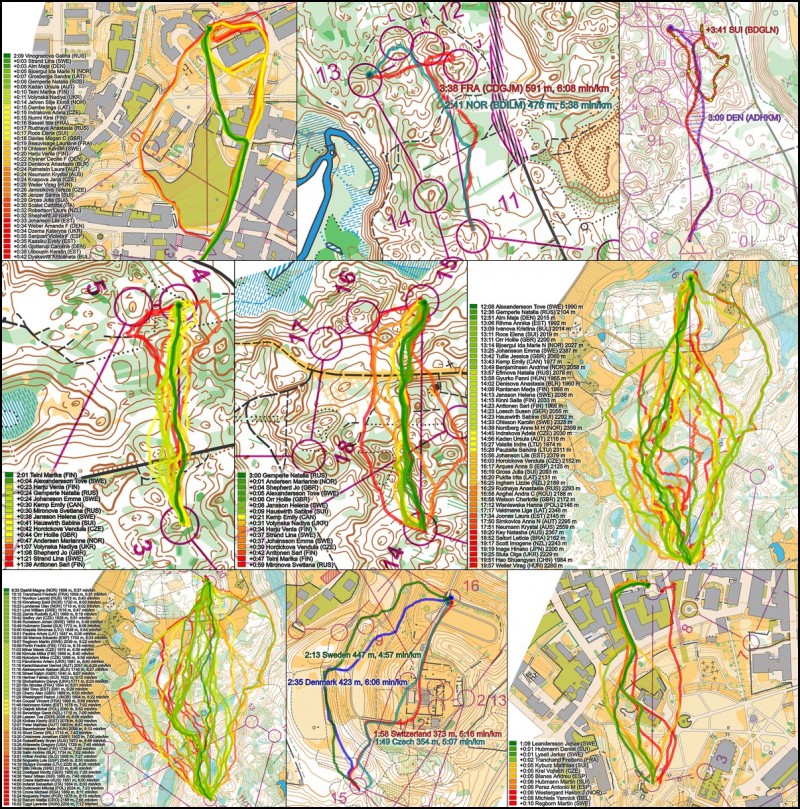
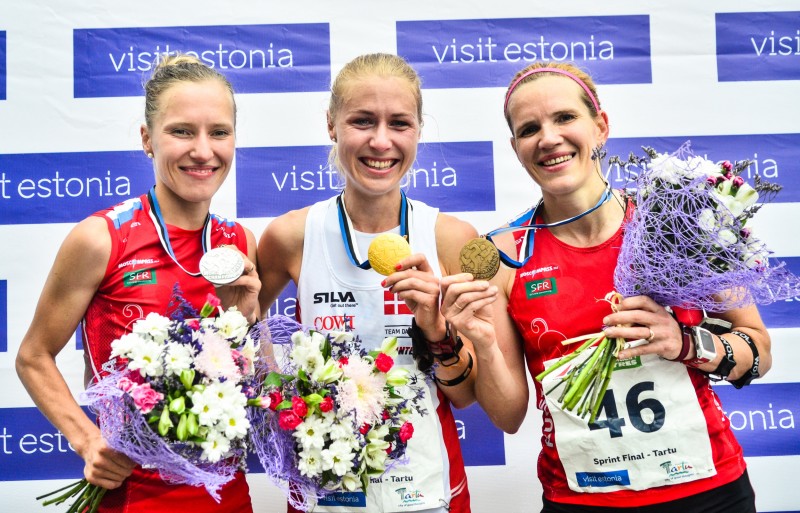
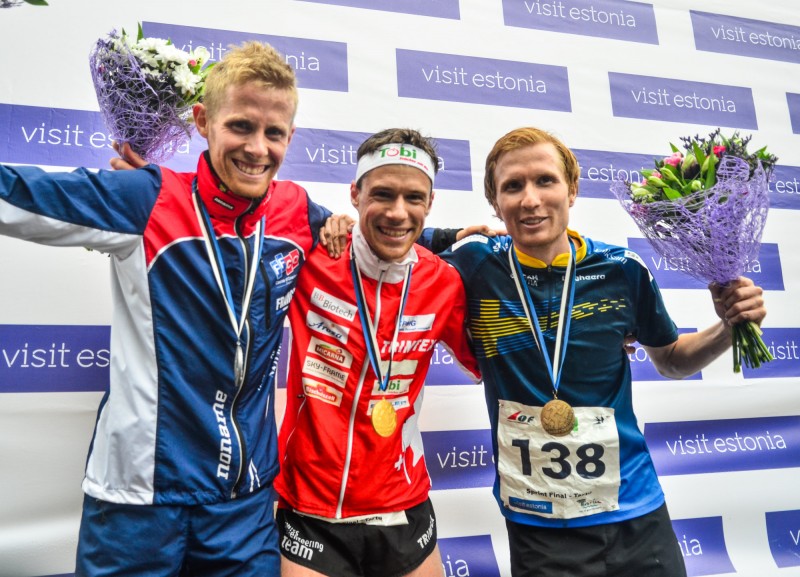
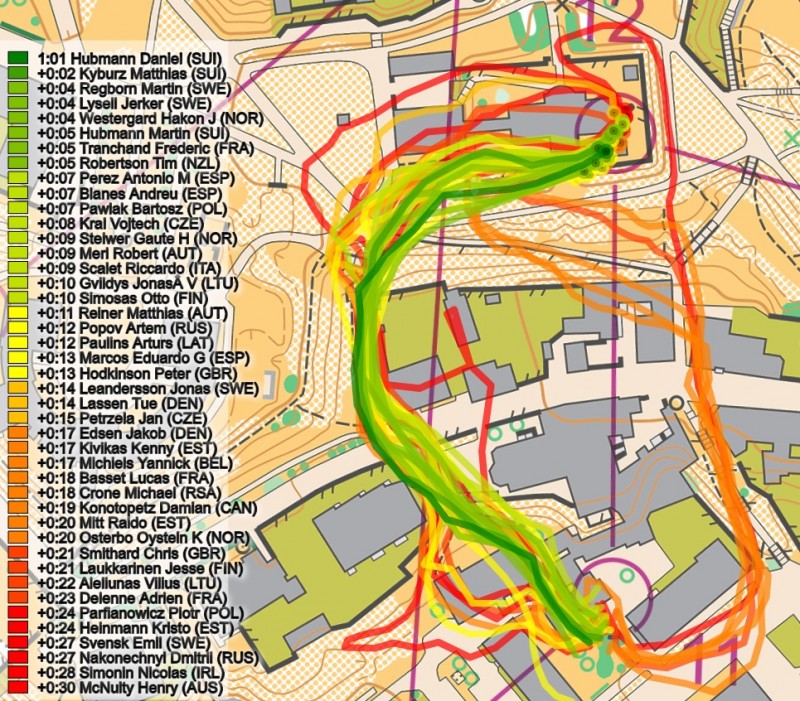
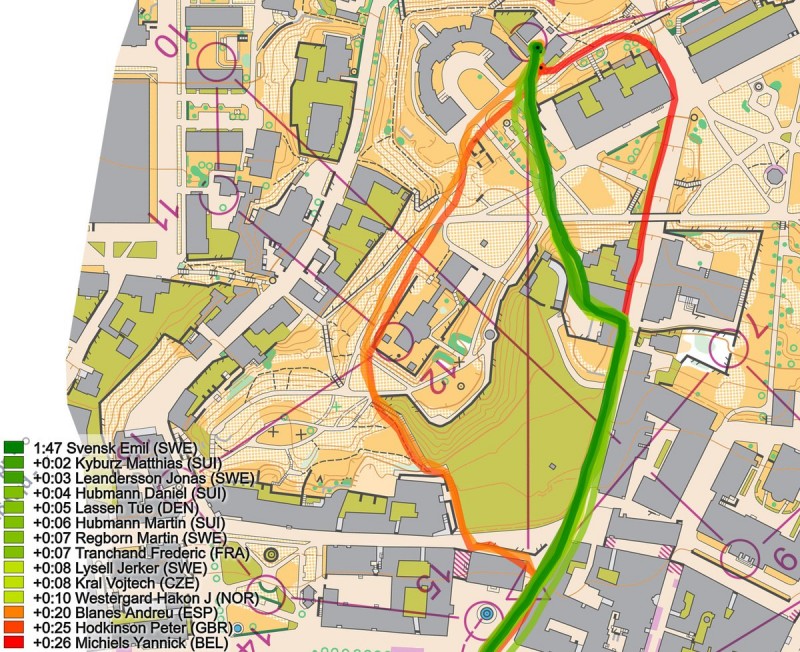
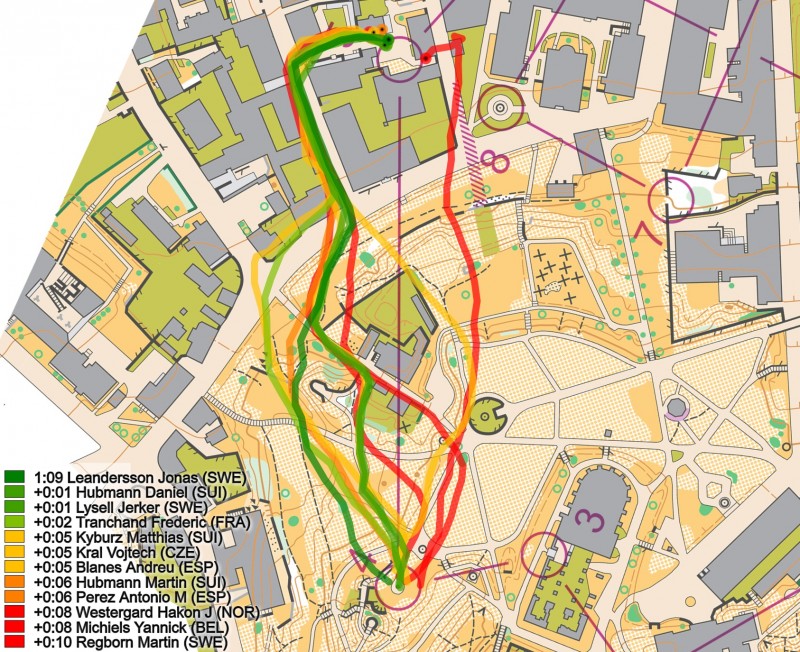
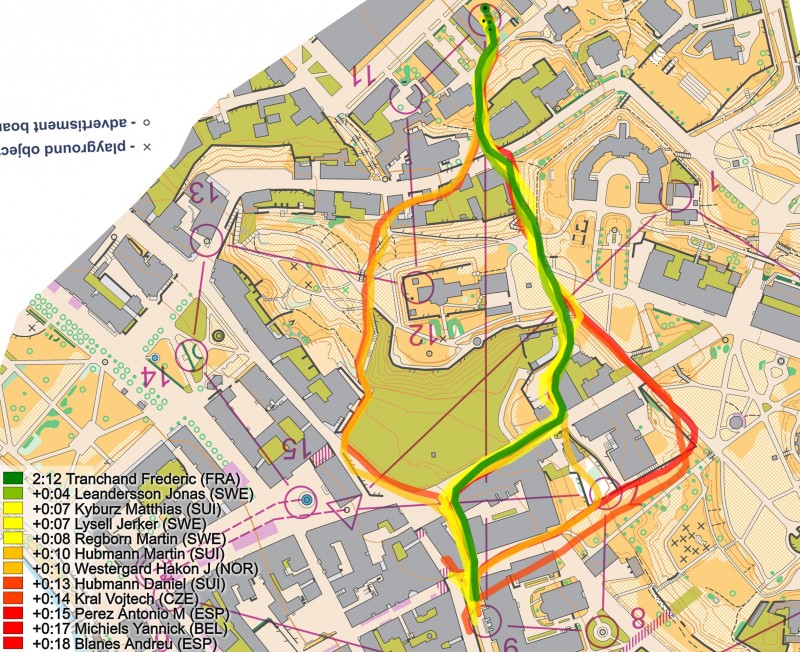
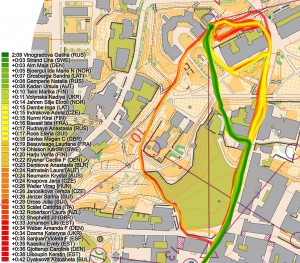
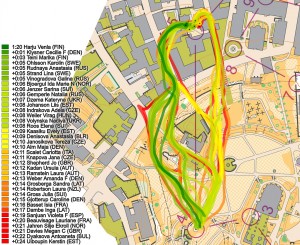
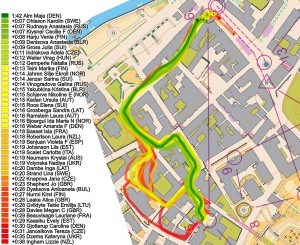
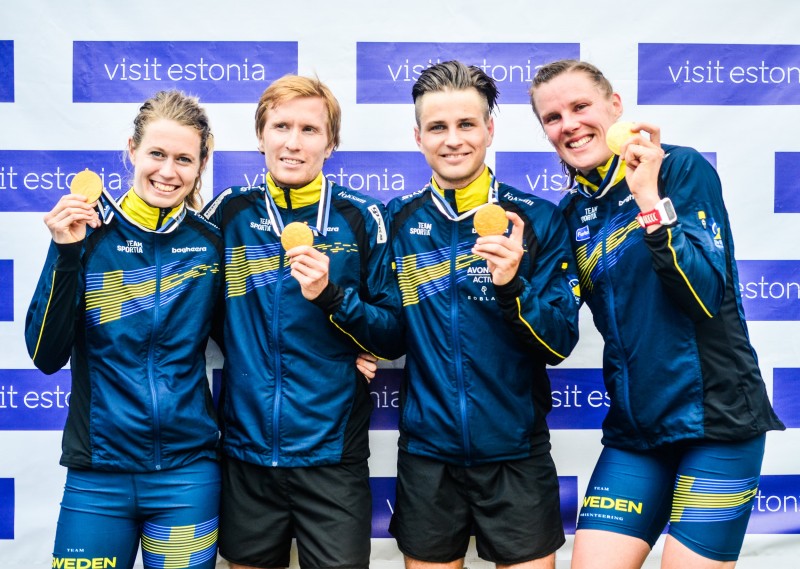
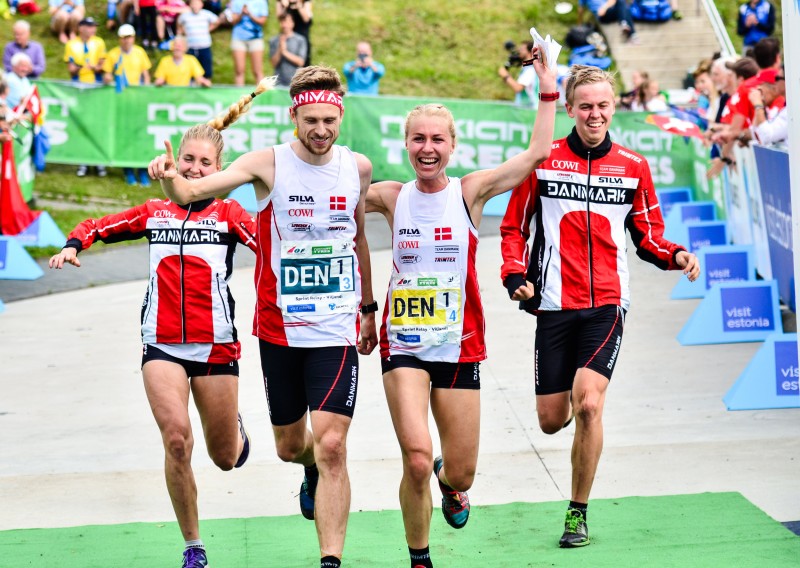
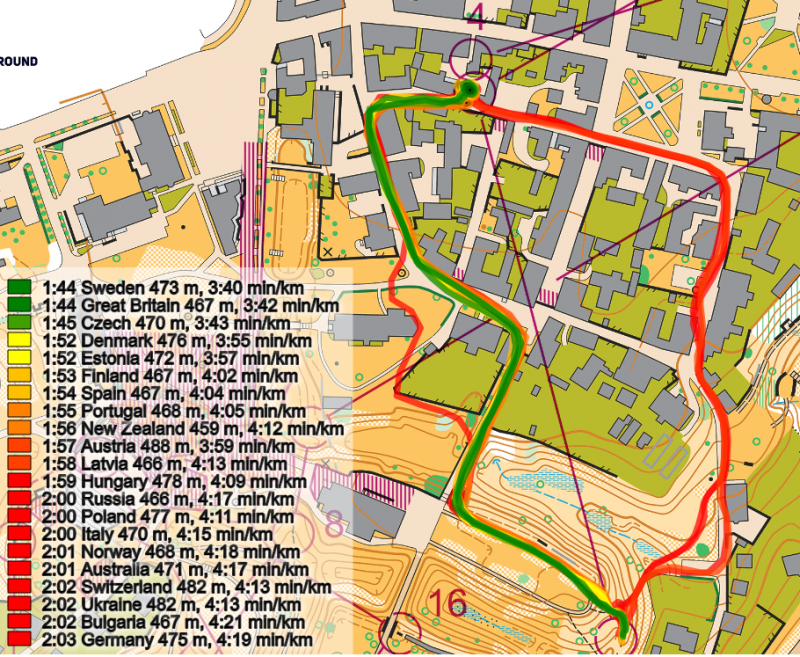

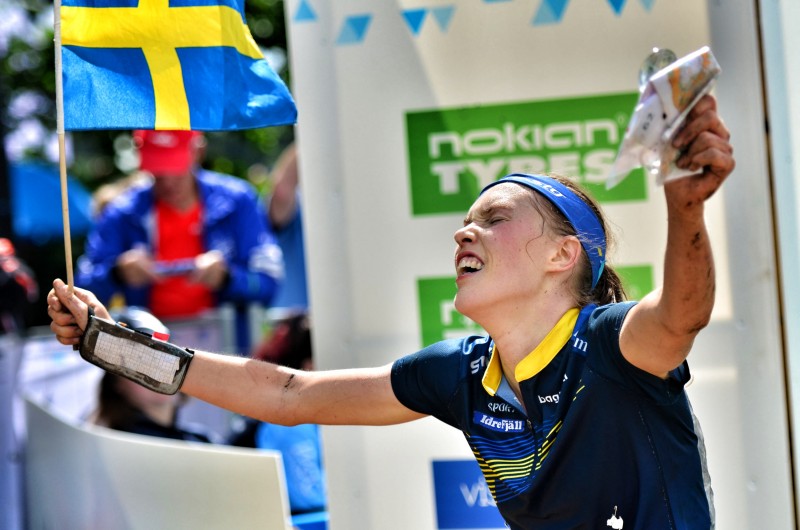
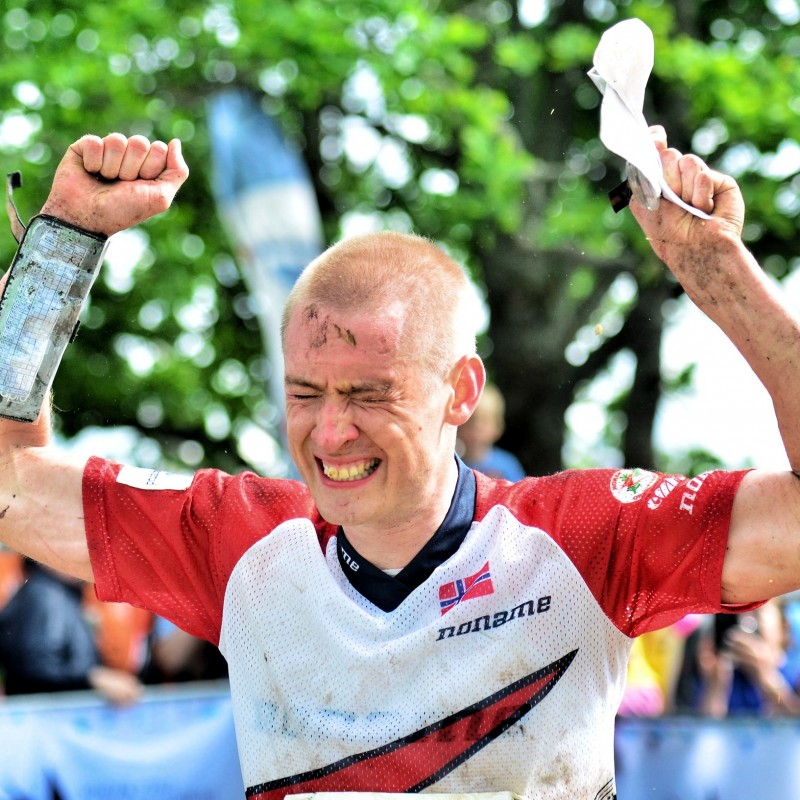
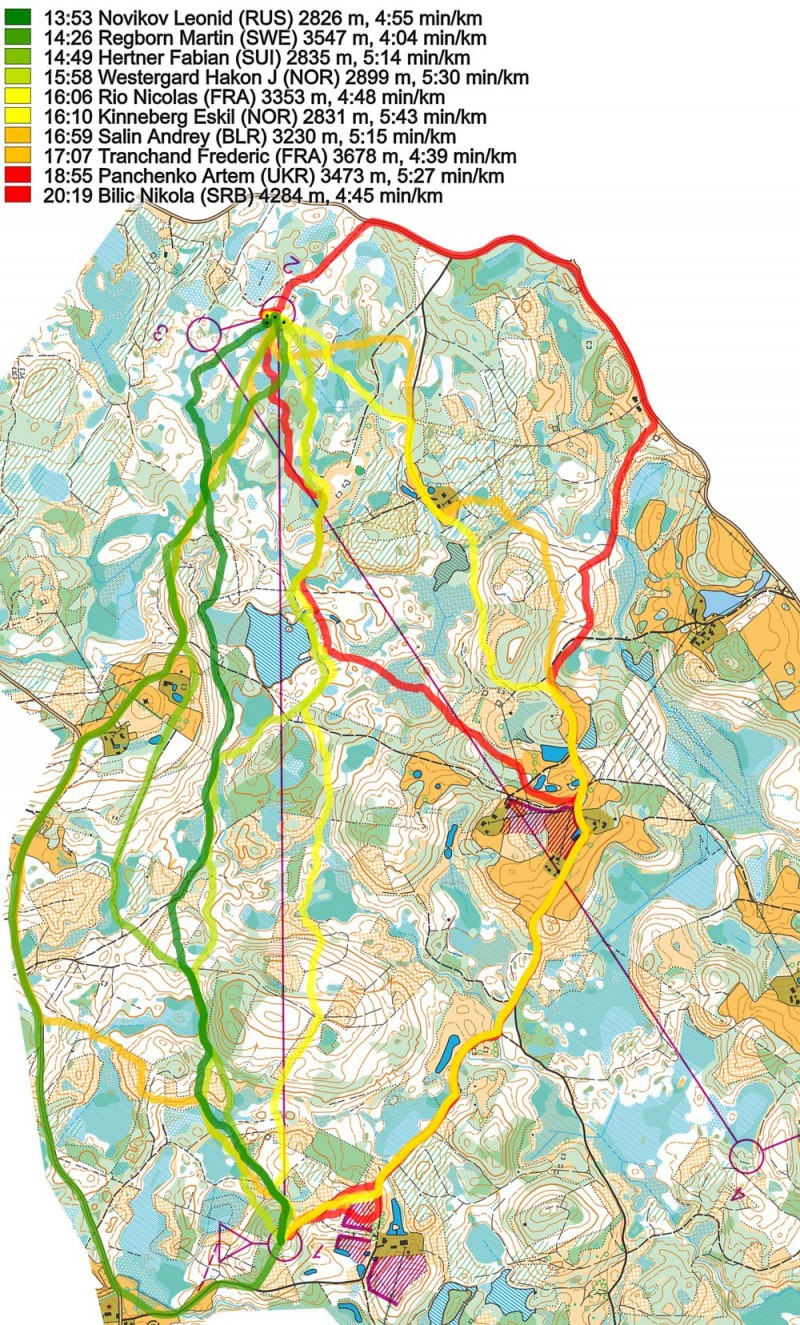
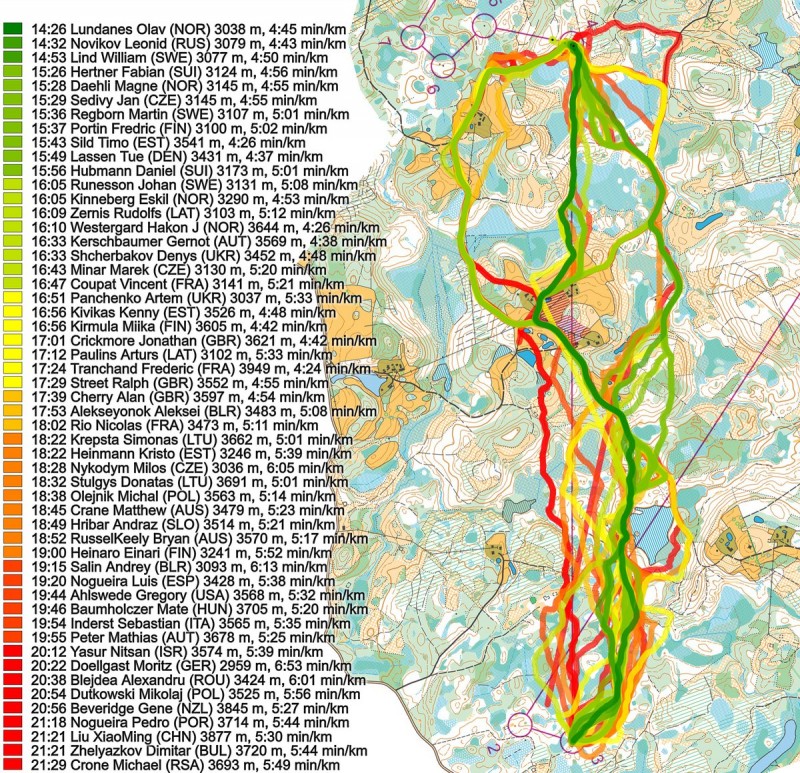
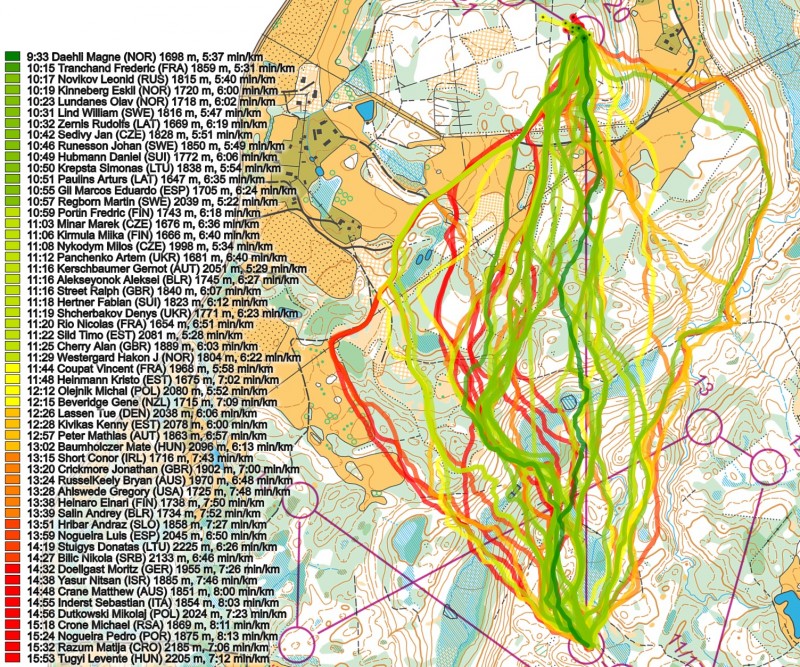
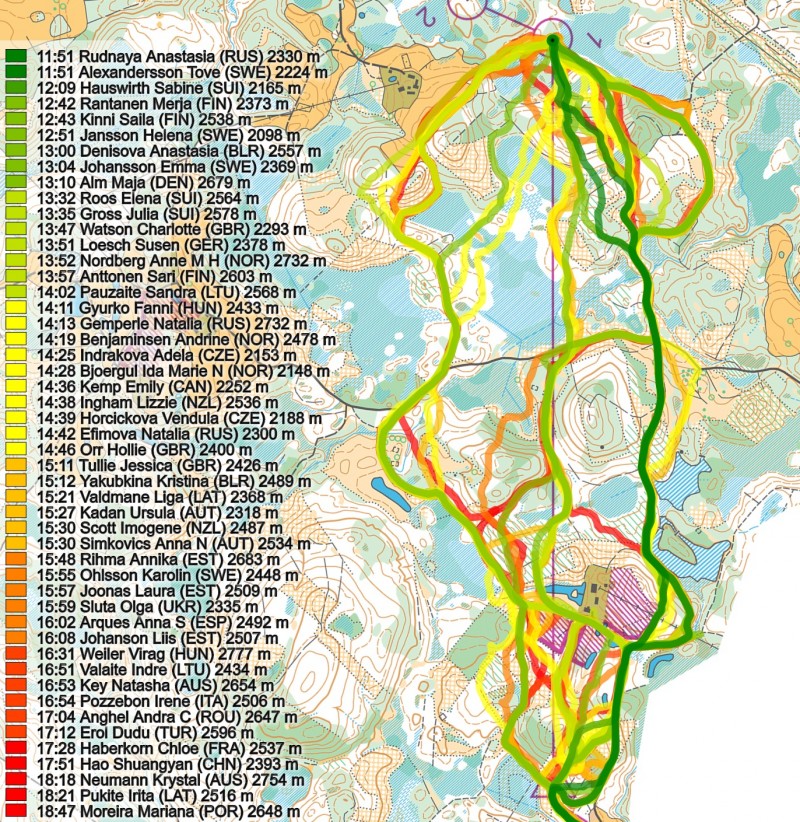
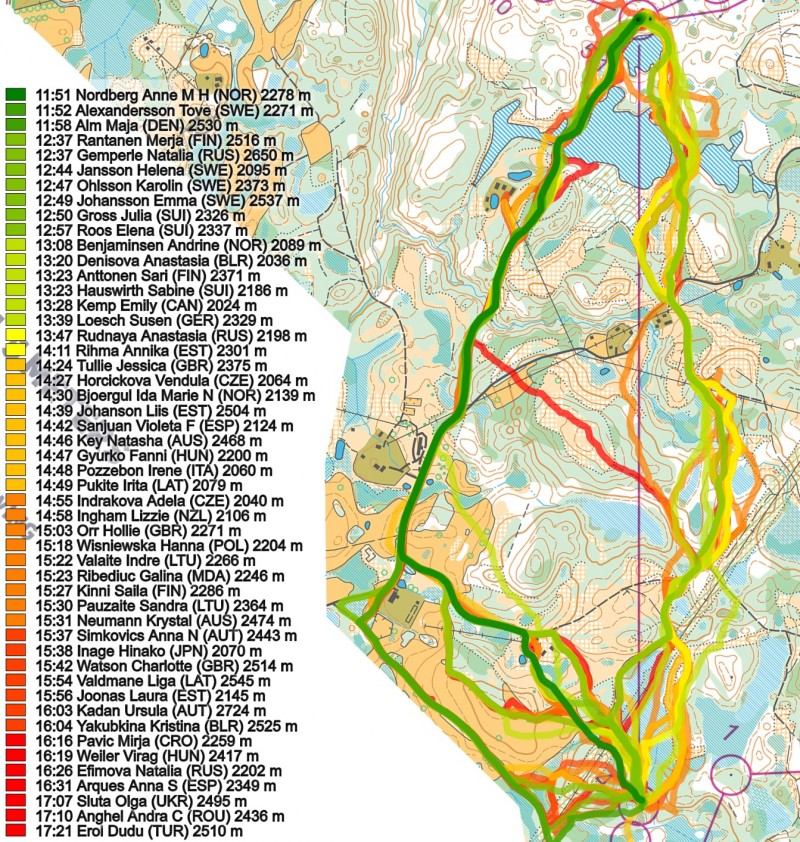
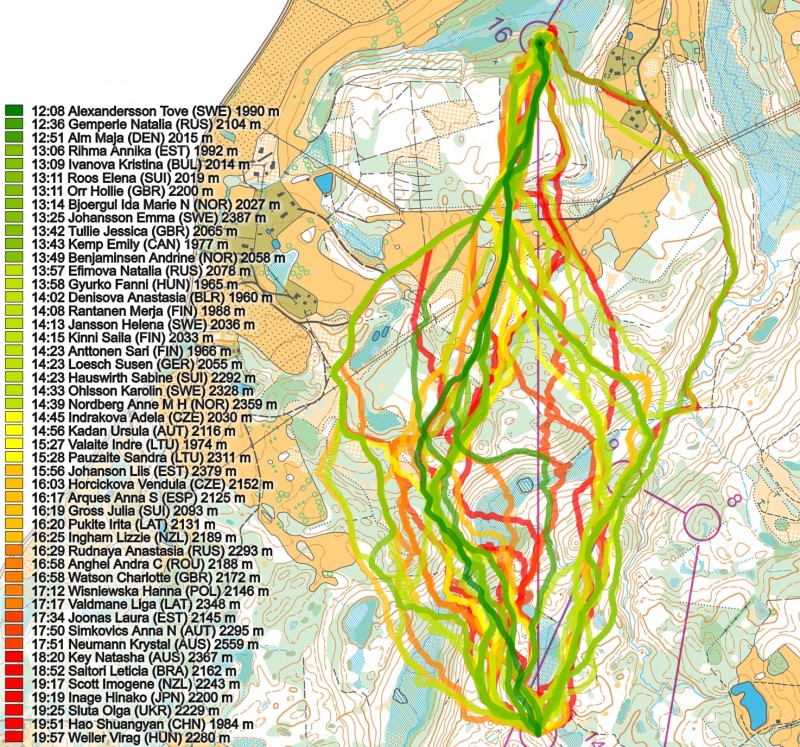
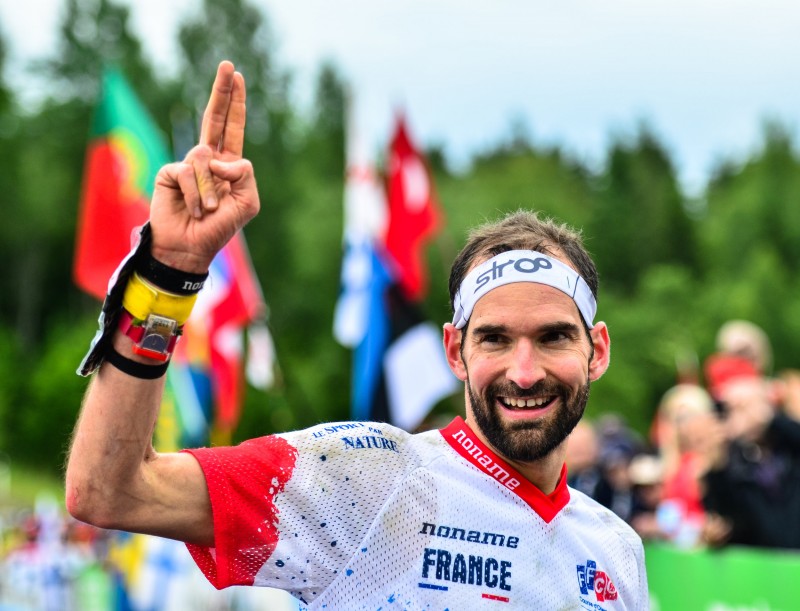
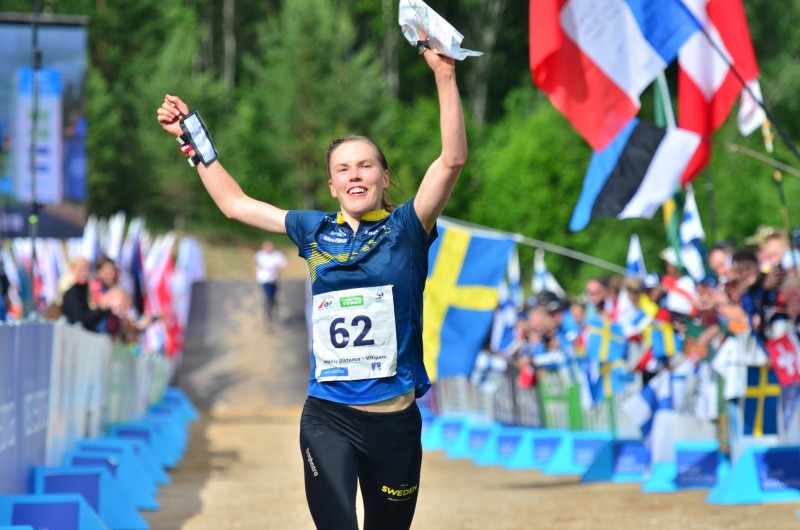
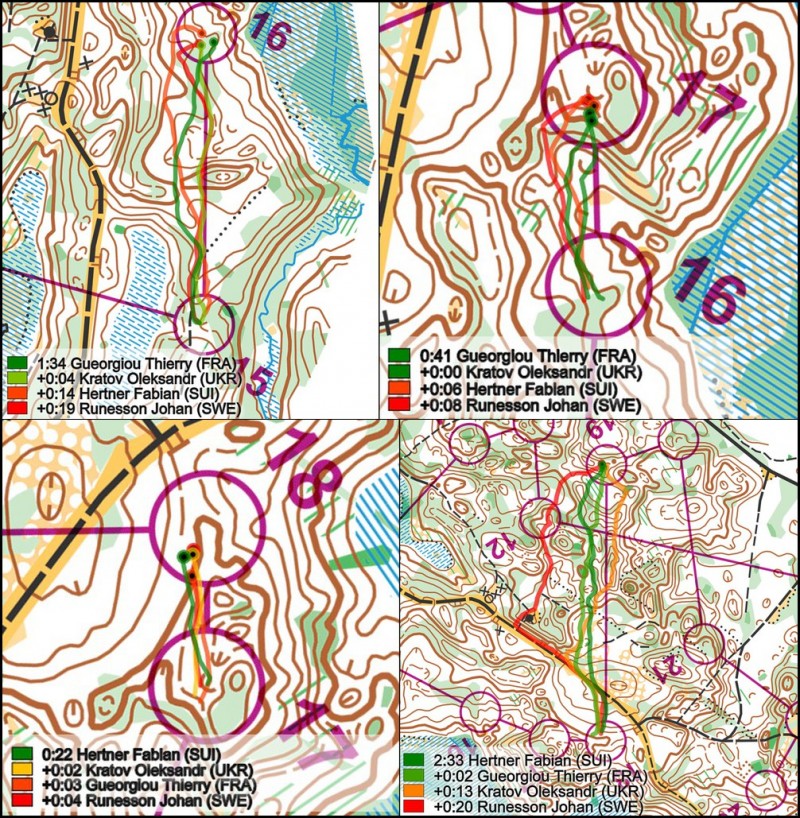
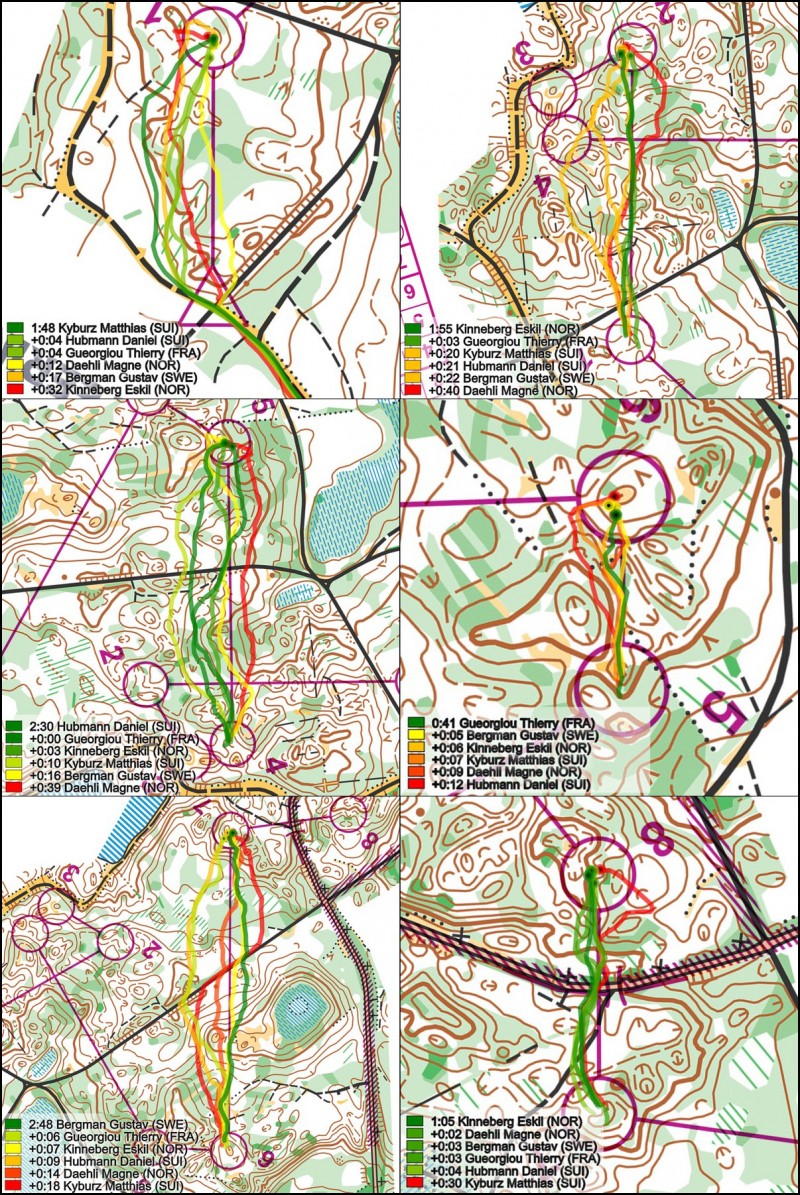
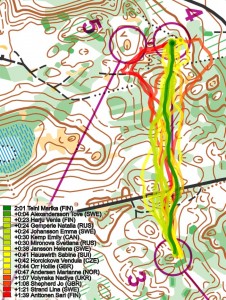
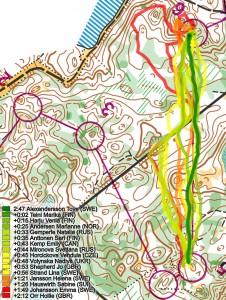
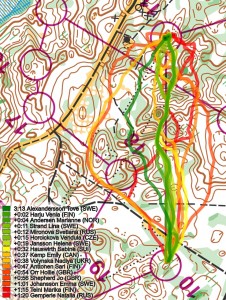
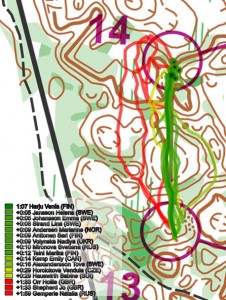
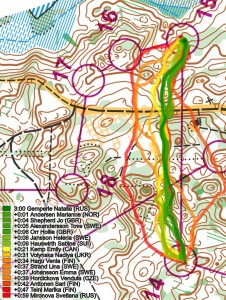
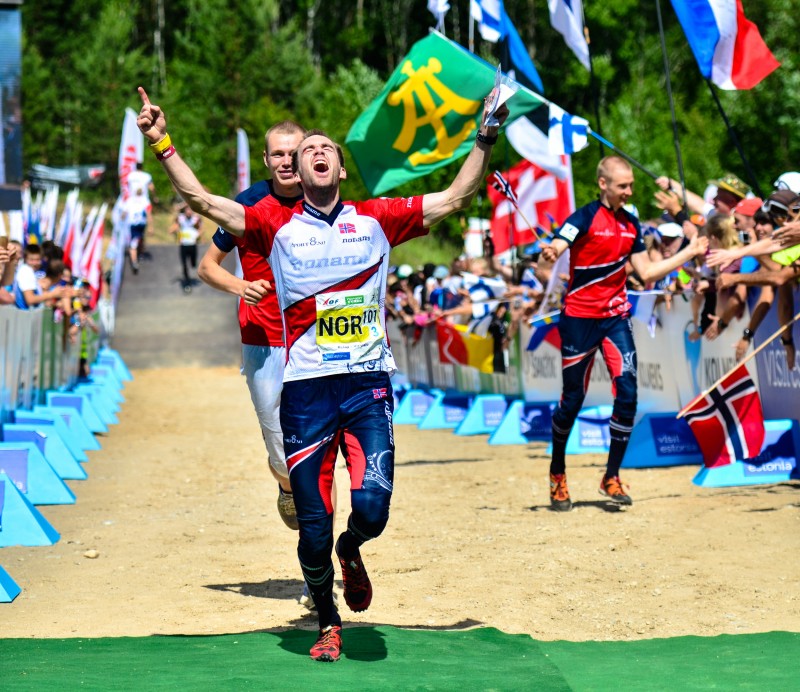
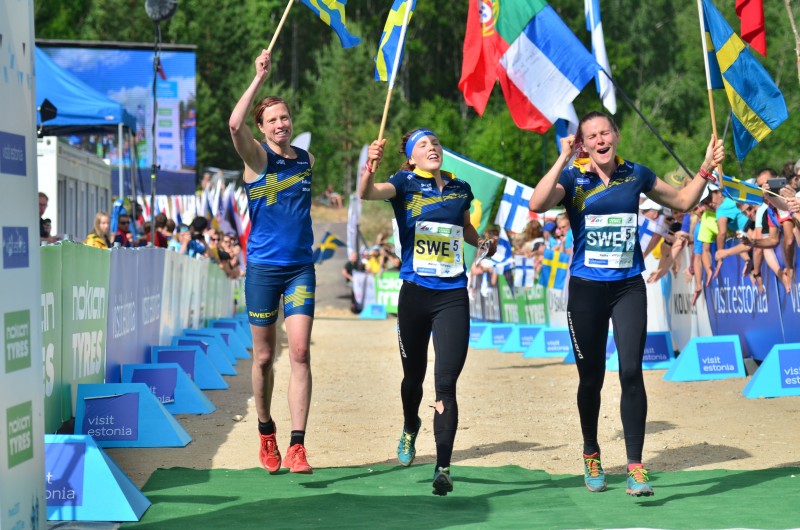
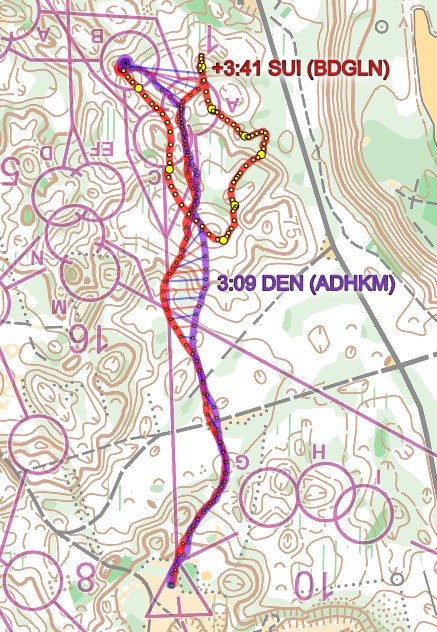
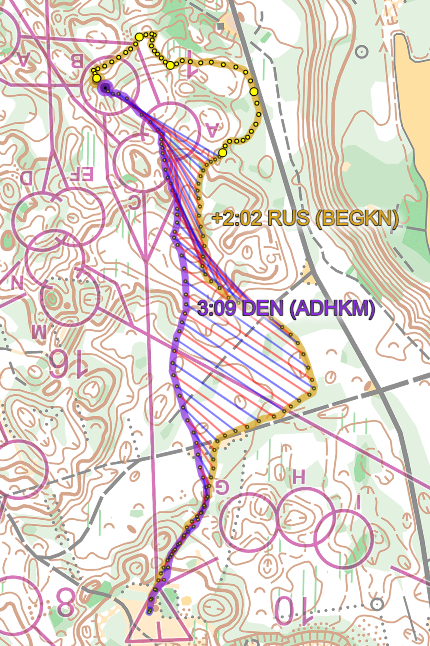

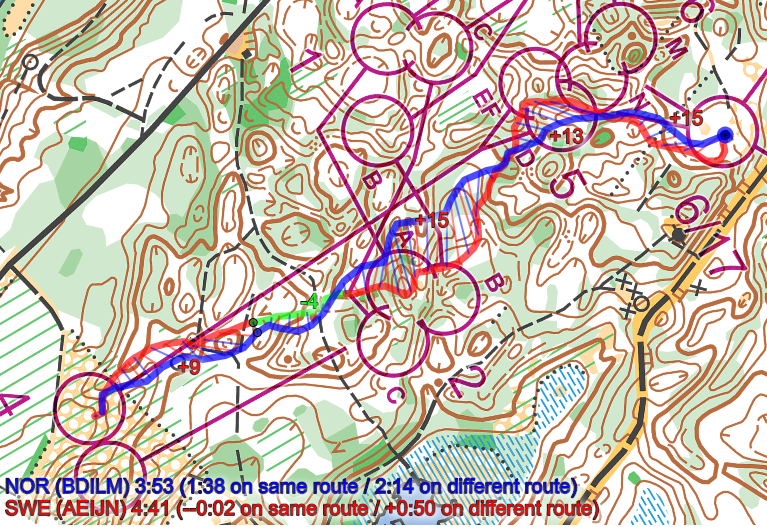

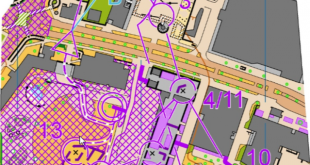
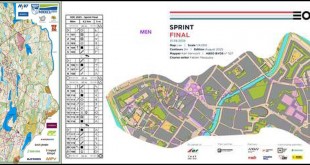
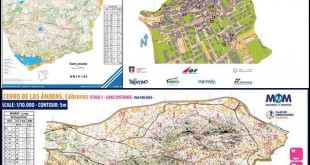
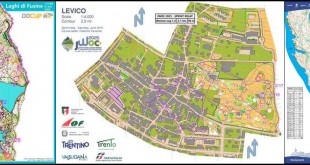
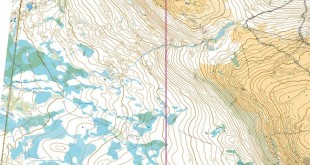
“Tove Alexandersson won her qualification heat and was identified as the only one who could really challenge Alm; Alexandersson did however get ill before the Sprint Final. ” – This is not correct. In fact, Heat B won Galina Vinogradova, Tove was the second.
Thanks Mike, I’ll update.